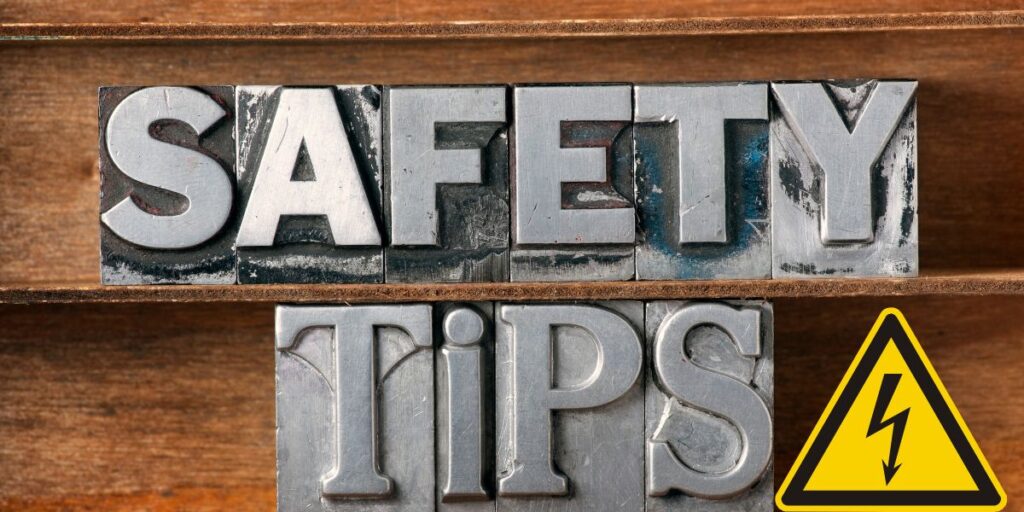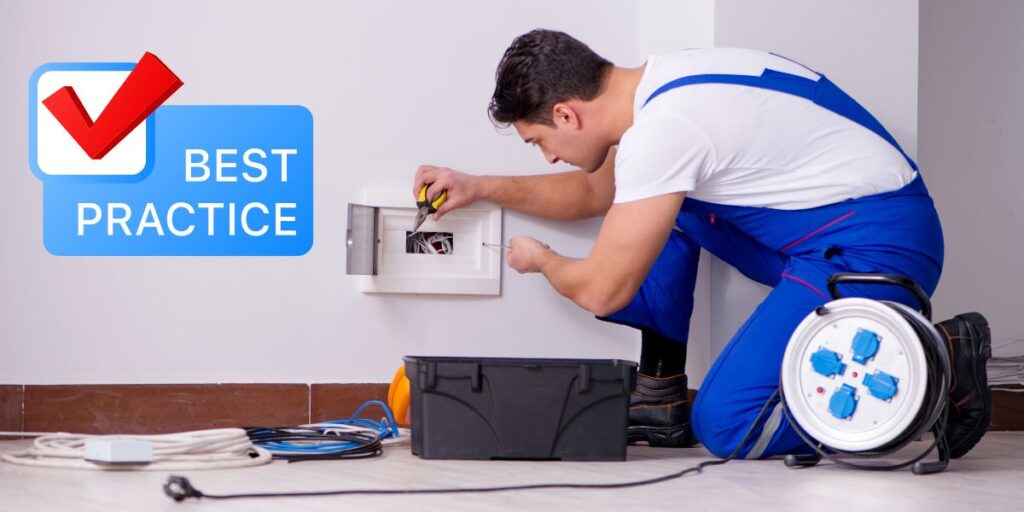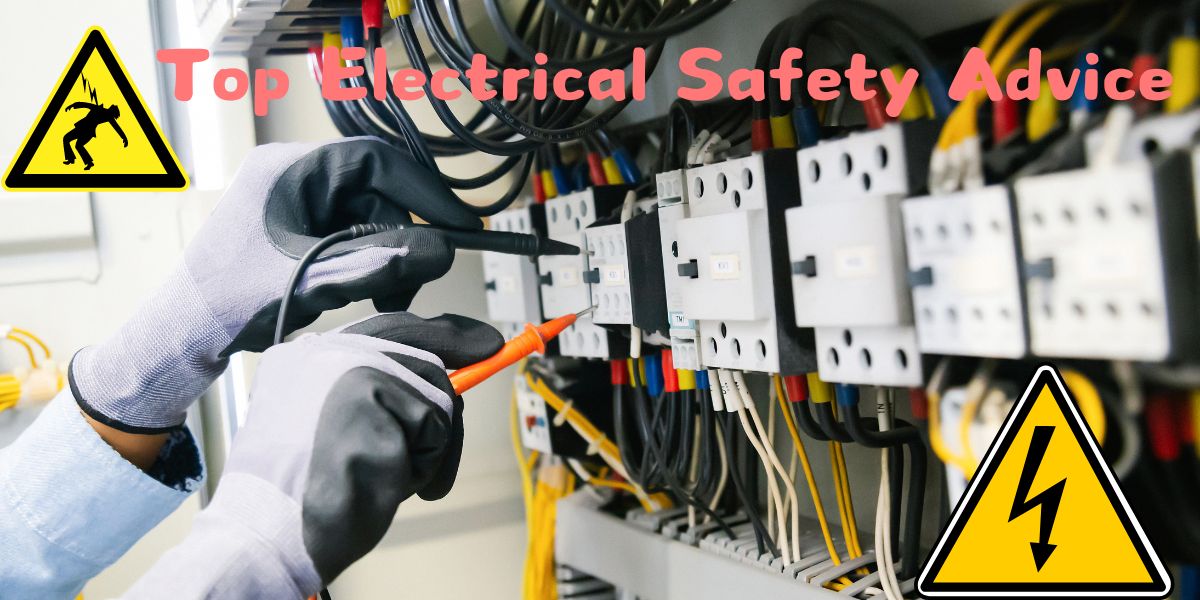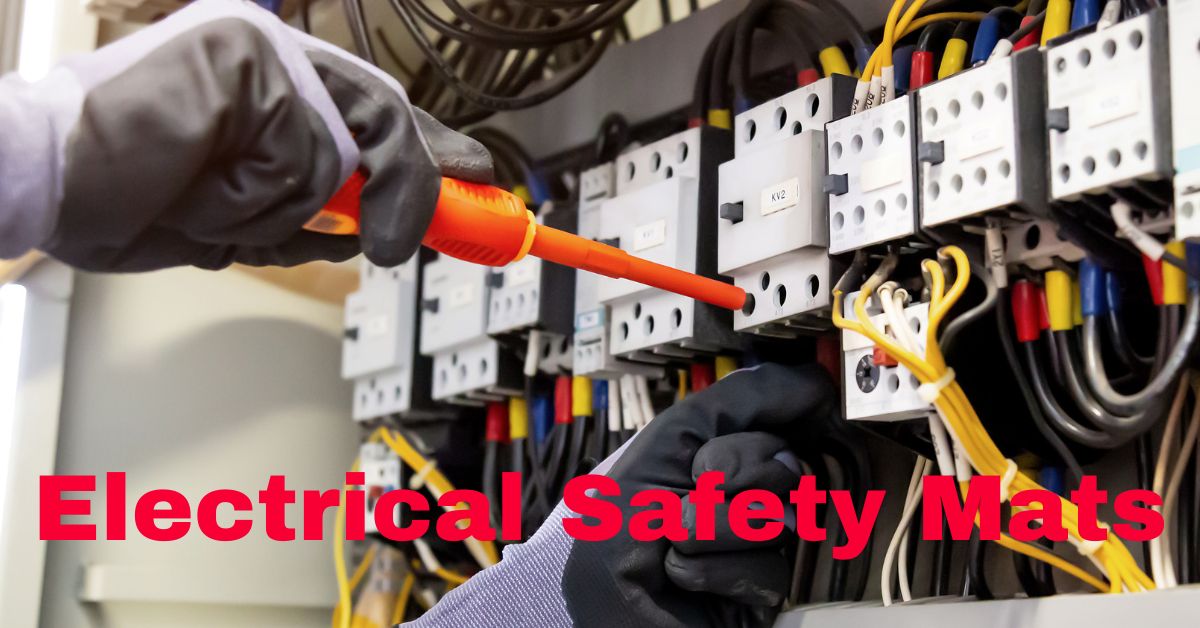Top Electrical Safety Advice, Electrical protection is a critical factor in retaining a safe home and workplace surroundings. With the increasing reliance on electric devices and appliances, expertise and adherence to the right electrical safety recommendations can save you accidents, accidents, and even fatalities. While many suggestions and practices are promoted to ensure electrical safety, not all advice is similarly powerful or appropriate.
In this article, we will discover common electric safety recommendations and pick out which of these guidelines might not be a true exercise. By knowing what to keep away from, you may better protect yourself and those around you from potential electric hazards.
Understanding Electrical Safety
Electrical safety is essential for stopping accidents, accidents, and fatalities. Understanding and enforcing the right protection measures can assist make sure that electricity is used adequately in homes, offices, and public areas. This guide covers the fundamentals of electrical safety, such as common dangers, safety suggestions, and first-rate practices.
Common Electrical Hazards
- Electric Shock: This happens whilst a person comes into touch with an electrical supply, inflicting modern-day to waft through the body. It can range from slight tingling to excessive damage or demise.
- Electrical Burns: These burns result from electric-powered surprise and can harm tissues and organs. They regularly require on-the-spot medical attention.
- Electrical Fires: Faulty wiring, overloaded circuits, or malfunctioning electric devices can cause fires. These fires can quickly spread, inflicting severe damage and injury.
- Arc Flashes: An arc flash is a surprising release of electrical energy through the air whilst an excessive-voltage gap exists and there may be a breakdown between conductors. Arc flashes can cause severe burns and injuries.
Electrical Safety Tips

Electrical Safety Tips
At Home
- Avoid Overloading Circuits: Do now not plug too many gadgets right into a single outlet or extension wire. This can cause overheating and growth in the hazard of the fireplace.
- Use Ground Fault Circuit Interrupters (GFCIs): Install GFCIs in areas where strength and water are nearby, consisting of kitchens, bathrooms, and outdoor regions. GFCIs can prevent electric surprise by shutting off the electricity if a floor fault is detected.
- Inspect Cords and Plugs: Regularly check electrical cords and plugs for wear and tear. Replace broken cords without delay to keep away from risks.
- Keep Electrical Devices Away from Water: Water is a conductor of power. Keep appliances like hairdryers, toasters, and energy tools away from water to save your electric surprise.
- Unplug Unused Devices: Unplugging gadgets whilst they’re now not in use can prevent overheating and decrease the risk of heart.
At Work
- Follow Lockout/Tagout Procedures: Ensure that the electrical system is nicely de-energized and locked out earlier than protection or repair work begins. This prevents accidental energization.
- Wear Personal Protective Equipment (PPE): Use appropriate PPE, which includes insulated gloves, safety glasses, and flame-resistant apparel, while operating with or close to electric systems.
- Maintain Clear Workspaces: Keep regions around electrical panels and devices free of muddle to make certain clean get admission to and prevent tripping hazards.
- Stay Informed and Trained: Regularly attend safety training sessions and stay up to date on pleasant practices and protection protocols for electrical paintings.
- Use Proper Tools and Equipment: Ensure that tools and systems used for electric paintings are in the right condition and rated for the voltage and project handy.
Best Practices for Electrical Safety

Best Practices for Electrical Safety
- Regular Inspections: Conduct everyday inspections of electrical systems and gadgets to perceive and cope with potential problems before they end up dangerous.
- Professional Maintenance: Hire certified electricians for any electrical paintings, installations, or upkeep. DIY electrical work may be risky and regularly no longer meet safety requirements.
- Understand Warning Signs: Be aware of warning signs and symptoms consisting of flickering lighting fixtures, burning smells, and tripped circuit breakers. These can indicate electrical troubles that want instantaneous attention.
- Educate and Train: Provide ordinary safety schooling and education for own family participants, personnel, or everybody who may be exposed to electric hazards. Knowledge is a key aspect of protection.
- Emergency Preparedness: Have an emergency plan in the region that includes how to respond to electrical fires, shocks, or other related incidents. Ensure that everyone knows how to thoroughly flip off the energy and where to locate hearth extinguishers.
Identifying Bad Electrical Safety Advice
Not all advice is a good recommendation. Here are some tips that could seem useful but are honestly hazardous. We will spotlight which of the subsequent isn’t a proper electric safety recommendation.
Using Extension Cords Permanently
Extension cords are intended for brief use most effective. Using them as an everlasting solution can result in overheating and fire risks. Always opt for putting in more shops rather than relying on extension cords.
Taping Over Circuit Breakers
Some humans would possibly endorse taping over a tripped circuit breaker to prevent it from shutting off. This is extremely dangerous because it prevents the breaker from doing its job of shielding the circuit from overloads and ability fires.
DIY Electrical Work Without Training
While DIY tasks are popular, electrical paintings need to be accomplished using educated experts. Untrained individuals working on electric structures can lead to dangerous errors and multiplied danger of electrocution and fires.
Ignoring Warning Signs
Ignoring warning signs and symptoms like flickering lighting, buzzing sounds, or burning smells can cause extreme hazards. These signs and symptoms frequently imply underlying electrical problems that need immediate interest from an expert.
Which of the Following is Not Good Electrical Safety Advice?
To address the number one keyword, “Which of the following isn’t always a proper electrical safety recommendation?” we want to pinpoint advice that might probably be dangerous. Here are a few examples:
- Using water to extinguish an electrical fireplace: Water conducts strength and may cause the hearth to spread or bring about electric surprise. Use a Class C fire extinguisher rather.
- Overloading strength strips: Power strips aren’t designed to deal with high loads. Overloading them can cause overheating and fires.
- Ignoring an again-and-again tripping circuit breaker: This is an indication of an electrical problem that desires to be addressed by a professional.
- Using broken cords and plugs: Damaged cords can cause electric shocks and fires. Always update them right away.
- Working on stay circuits: Never paintings on stay electric circuits. Always ensure the strength is turned off before starting any paintings.
- Using extension cords permanently: As noted in advance, extension cords are for brief use best and can be risky if used permanently.
- DIY electrical upkeep without proper expertise: Electrical work calls for particular understanding and talent. DIY upkeep can be extraordinarily dangerous if no longer executed efficiently.
- Ignoring electric safety hints and policies: Always comply with electrical safety hints and regulations to ensure safety.
Of these, the worst recommendation is the usage of water to extinguish an electrical hearth. This advice can cause intense injury or even demise because of electric surprise and is not a proper electric protection recommendation.
FAQs
What ought I do if my circuit breaker maintains tripping?
If your circuit breaker continues tripping, it is a signal of electrical trouble. Do no longer ignore it. Contact a certified electrician to look into and solve the trouble.
Can I use an extension twine for my air conditioner?
No, you should not use an extension wire for high-energy home equipment like air conditioners. They require a devoted outlet to save you from overheating and capacity fire dangers.
How often should I check my electric cords and plugs?
Regularly look into your electrical cords and plugs for any signs and symptoms of damage, fraying, or wear. Replace them at once if any troubles are located to save you risks.
Is it safe to do my very own electric repairs?
It is not secure to carry out electric repairs until you’re a skilled and authorized electrician. Electrical paintings call for unique knowledge and may be dangerous if no longer achieved efficiently.
What kind of hearth extinguisher should I use for an electrical hearth?
Use a Class C hearth extinguisher for electrical fires. Never use water as it could conduct electricity and pose further dangers.
Why are GFCIs critical?
Ground Fault Circuit Interrupters (GFCIs) shield against electric shocks by shutting off the circuit whilst an imbalance is detected. They are vital in areas with moisture, which include bathrooms and kitchens.
How can I save you electric shocks at domestic?
To save you electric shocks, constantly use insulated tools, keep away from handling electric gadgets with moist arms, and make certain your house is prepared with GFCIs.
What ought I do if I smell burning or see sparks from an outlet?
If you scent burning or see sparks from an outlet, flip off the energy immediately and speak to a licensed electrician. These are symptoms of a critical electrical problem.
Conclusion
Electrical safety is paramount in preventing injuries and ensuring the well-being of individuals and homes. While many protection recommendations are beneficial, it is vital to discover which of the following isn’t always a good electrical safety recommendation.
As we’ve discussed, using water to extinguish an electrical fireplace is extremely dangerous and must in no way be considered. Always observe proper protection suggestions, use the proper tools and systems, and seek advice from professionals for electrical paintings. By doing so, you may create safer surroundings and save yourself ability danger.




